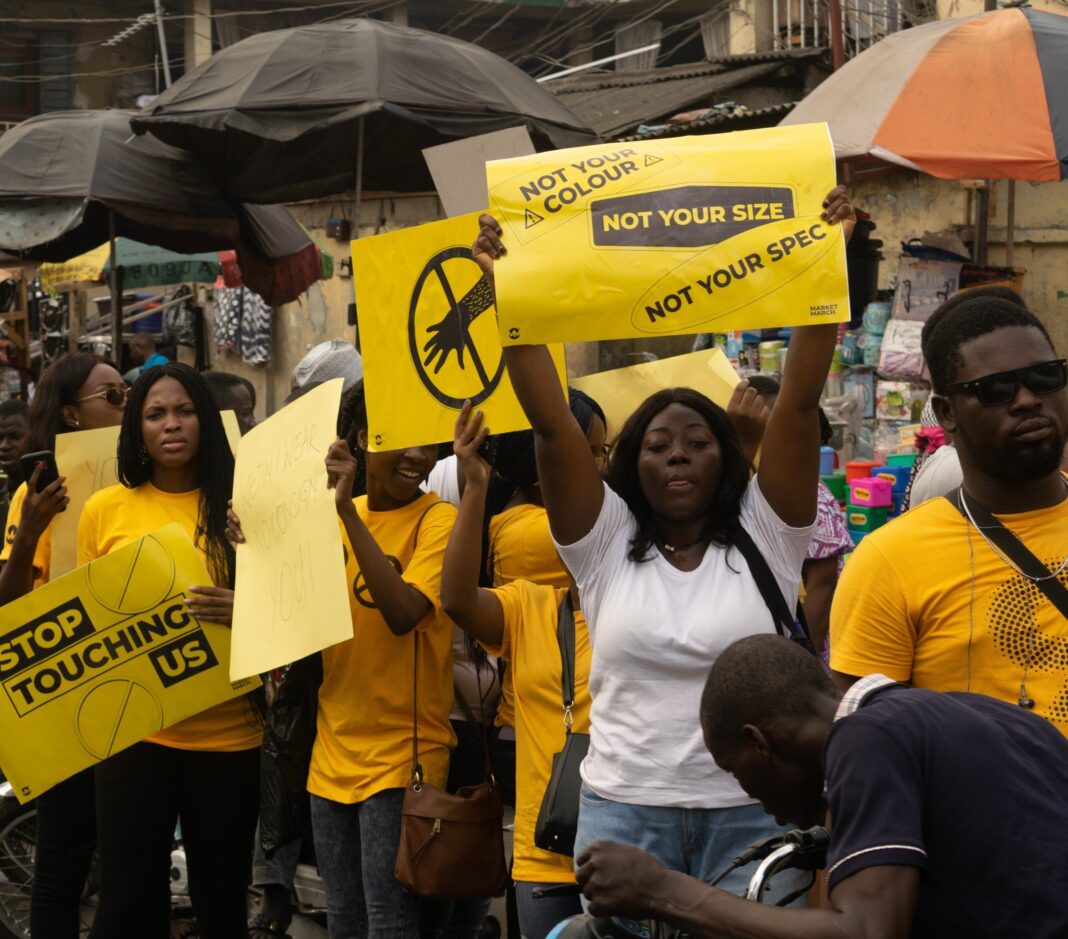In the pre-colonial era in Nigeria, women assumed caretaking and nurturing roles in their homes. Occasionally, history recorded tales of a few women who dared to change the narratives, but there isn’t much documentation around these women to decipher what motivated their need for change. Sadly, their legacies have almost become lost in time as few sources can attest to their existence, while others continue to debate.
The history of feminism in Nigeria can be traced to the colonial era, when women carried on a movement that solely addressed their struggles and peculiarities, after noticing the oppression and neglect they faced in the hands of the operating structure of the society.
Men were in positions of power, men controlled the bulk of resources and there were barely any women who had active decision-making capacities. These changed as more and women rose in solidarity against oppression, discrimination, and marginalization.
Article Content
Colonial Feminism
The Aba women’s riot of 1929 was one noteworthy event that “marked” the beginning of a new dispensation for Nigerian women. The riot was a revolt against warrant chiefs and the exploitative taxes imposed by the British government at the time. This riot had thousands of Igbo women from Bende district, Umuahia, and other parts of the eastern region travel down to Aba for the protests. This revolt was the first of its kind in West Africa and eventually yielded results. A large percentage of warrant chiefs resigned and the British government abolished the entire system in 1930. They also appointed women as members of the Native court system.
In 1946, Abeokuta women’s union (AWU) came out in scores to demonstrate their dissatisfaction with imposing unfair taxes by the British government. Led by the founder of AWU, Olufunmilayo Ransome Kuti who is also regarded as the first Nigerian feminist, the women argued that their economic roles were reduced by the impact of the taxes. They also demanded that women should be given positions in the local government as they would not pay taxes separately from men. The protests were successful and women received four seats at the local council, and they scrapped the entire tax system.
Postcolonial Feminism
The beginning of feminism in Nigeria can be traced to the establishment of Women in Nigeria(WIN) in 1982. Founded by a group of female political lecturers at the Ahmadu Bello University, to foster awareness of the nationwide oppression and exploitation of women in Nigeria. The group held its first conference in the same year in Zaria. The group believed that the oppression of women resulted from the structure of society, and how social status segmented Nigerians into rich or poor. Hence, this influenced how the group executed its objectives by trying to bridge the gap, using class and gender dynamics to emancipate women.
Women like Chimamanda Ngozi Adichie, who have contributed her quota through her writing, using her stories to document the peculiarities of Nigerian women, have also emerged, starting conversations around feminism, and constantly trying to educate people about its importance. It is safe to say feminism has developed into a ground-breaking movement in Nigeria.
Over the decades, Nigerian feminists have achieved a lot by demanding justice and equality for Nigerian women in political, economical, and all aspects of social life, using different mediums in their different spheres of influence. Although a lot of Nigerians are still quite resistant to the movement because of the deep patriarchal structure of Nigerian society, more people are warming up to embrace feminism.
In the wake of the #EndSars protests in Nigeria in 2020, a group of women from the Feminist Coalition came out to crowdfund and provide legal aid, food, and foot hospital bills of protesters who demanded the end of the rouge arm of the Nigerian police force.
The feminist Coalition stepped up to take on this “task” at a time where a lot of Nigerians were terrified and frightened to do it.
From the era of the colonial feminists to the post-colonial era, one thing is constant, the role of feminism in creating new opportunities, demanding justice, and promoting the equality of sexes in Nigeria cannot be overemphasized.
Read Also: Can Feminism and Capitalism Coexist?


